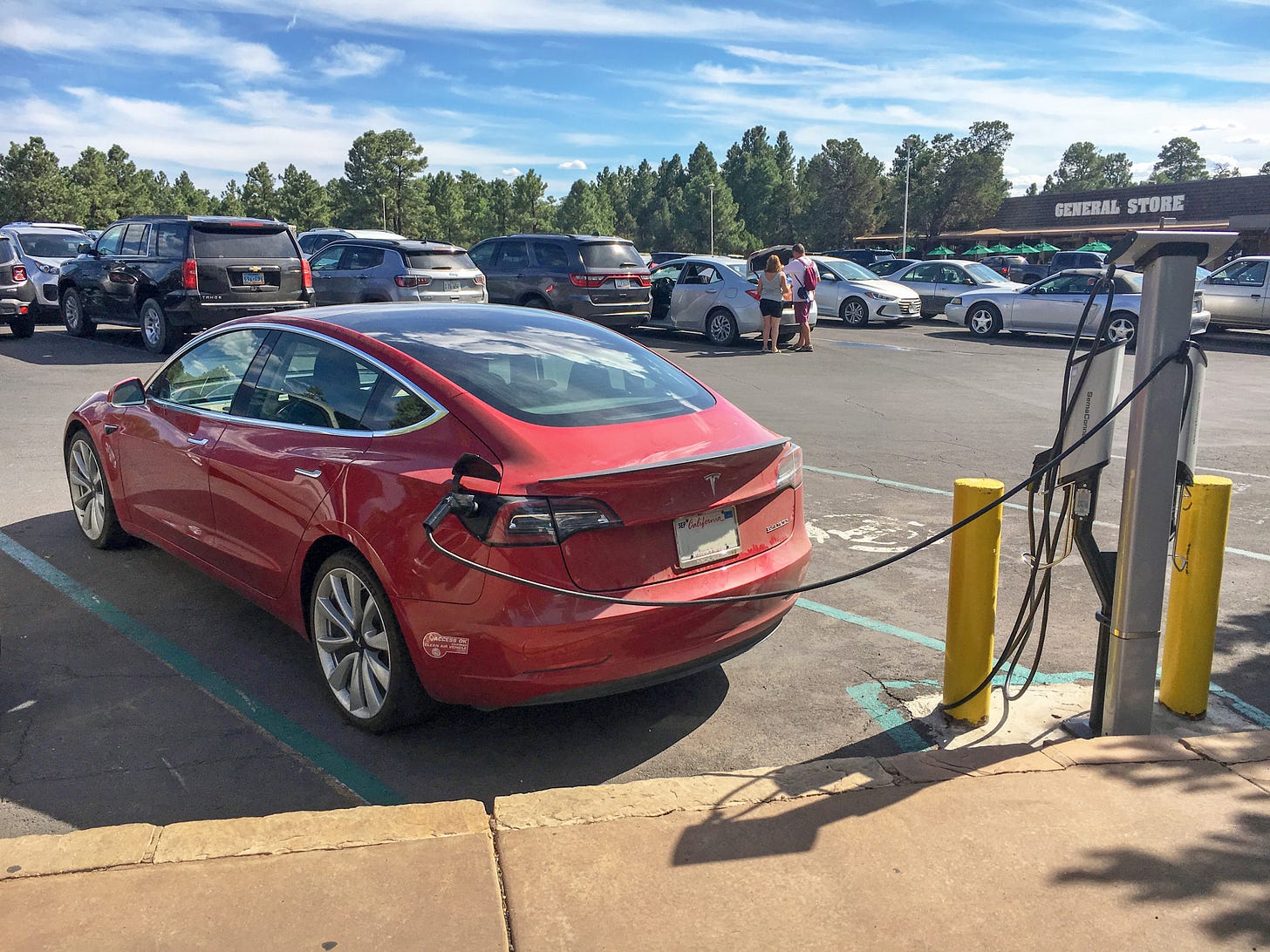Republicans vote to nullify California waivers allowing strict vehicle emission standards
Using the Congressional Review Act, Republicans are targeting waivers that let California strongly encourage electric vehicle sales.
House Republicans approved measures on Wednesday to revoke waivers granted to California under the Clean Air Act to set emission standards for certain vehicles that go beyond federal pollution limits.
The three Congressional Review Act (CRA) resolutions targeted waivers the Biden administration issued to California last year authorizing state laws that aim to phase out the sale of gas cars and drastically increase the number of zero emission trucks by 2035.
(Note: Just two of the resolutions, addressing California’s waivers for heavy-duty vehicles and nitrogen oxides, were passed with recorded votes on Wednesday. A third addressing passenger vehicles received a voice vote in favor of approval, but the final tally was postponed after Democratic Rep. Frank Pallone of New Jersey requested a count.)
The CRA, generally, allows lawmakers in a newly-formed Congress to quickly nullify rules finalized at the end of the previous year, subject to certain constraints. President Donald Trump, who has opposed the California waivers, already signed CRA resolutions to eliminate fees for methane leaks and a rule that imposed restrictions on offshore oil and gas drilling.
The Clean Air Act (CAA) normally preempts state-level regulations, but includes provisions that expressly give the U.S. Environmental Protection Agency the power to issue waivers to California, due to the state’s particularly bad air quality when that law was first enacted.
California, which has big-picture plans to cut greenhouse gas emissions 85% by 2045, has received the approval numerous times in recent decades. The CAA also allows other states to adopt California’s standards, and 13 have done so.
While the national standards are the only ones that technically apply in most states, many say the sheer size of California’s economy alongside those other states make its regulations a de-facto national standard.
The House’s votes now focus attention on the Senate, where Republicans may soon follow suit despite a recent ruling from parliamentarian Elizabeth MacDonough that the waivers do not qualify for consideration under the CRA.
Ignoring that ruling would buck decades of precedent under presidential administrations of both parties, and would lay the foundation for potentially tricky legal fights down the road should a future president decide to grant California a new waiver.
That’s in part because the CRA explicitly prohibits a federal agency like the Environmental Protection Agency from approving new rules that are “substantially similar” to ones already disapproved.
Jody Freeman, a professor at Harvard Law School, told Landmark that it is very likely that a future Democratic administration would try to reissue a waiver to California, and would therefore need to differentiate that waiver to some degree.
But who decides what is and is not “substantially similar”? The CRA includes a provision that prohibits judicial review of the resolutions, but does that mean courts are prohibited from playing referee down the line when a potentially similar rule is passed?
Freeman said there isn’t a ton of precedent on those questions.
“That’s an open question,” she said.
Michael Buschbacher, a partner at the law firm Boyden Gray and previously an attorney in the Justice Department’s Environment Division during the first Trump administration, agrees that some questions related to the CRA are “largely untested.”
He expects that there could be new California waivers under a hypothetical future administration, but thinks the substantially similar restriction would mean that those waivers couldn’t greenlight policies that essentially mandate big vehicle technology shifts to electrify and control nitrogen oxides limitations (another focus of one of the targeted California waivers).
“I would say substantially similar means something where it's mandating electric vehicles,” he said.
Jeff Holmstead, a partner at the law firm Bracewell and former EPA lawyer during the second Bush administration, told Landmark that he and others were “a bit surprised that the Biden administration went ahead and granted these waivers at the very end” of last year, knowing the potential CRA implications.
He said, all of the uncertainty aside, there is a good chance that the CRA vote “would prohibit or make it much more difficult for a future administration to grant waivers for any California program requiring EVs or other zero emission vehicles,” despite its long history of receiving those permissions.




Good essay!